A deep dive into female entrepreneurship – a look at epNetwork and beyond
epNetwork consists of brilliant entrepreneurs from diverse backgrounds working in a variety of different sectors. However, with regards to gender – it is not that diverse. Who are the women that make up our network and why are there fewer women-led businesses in general? As part of my master’s thesis, I spoke with six female entrepreneurs from our network to better understand the individual contexts of women’s entrepreneurship.
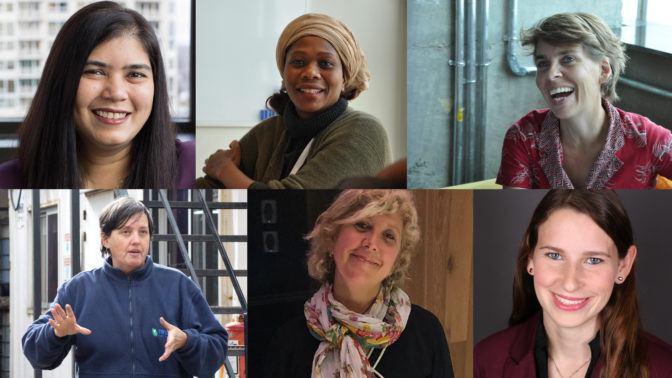
There is a gender gap in epNetwork. You may have already noticed this when browsing through our member organizations – unfortunately, only around a quarter of them are currently led by women. There is also a gender gap in total entrepreneurial activity globally: 10.2% of women are entrepreneurially active, compared to 13.9% of men.[1] The highest rates of women in entrepreneurship are found in low-income countries (15.1% of women compared to 18.3% of men).[2] This statistic is all the more unfortunate given the high potential of female entrepreneurs to be critical drivers of change; one reason is that women are traditionally well-connected within their communities, and are often in charge of raising future generations. Moreover, they employ other women and, thereby, expand their own economic empowerment. They also tend to create female-friendly working environments, and their products or services often take into account women’s needs.[3] Considering this, bringing more women to (social) entrepreneurship is a key factor in contributing to a more equal society and to development that is inherently sustainable.
To find out what makes social entrepreneurship attractive for women and how we, at Siemens Stiftung, could support them best, I wondered what characterizes women’s entrepreneurship in the first place. Why do women decide to start a business? What are their needs as entrepreneurs? How do they benefit from networks? And how can we design epNetwork accordingly?
Therefore, I spoke with six women from epNetwork to get a better understanding of their entrepreneurial story.
Ana Luisa Arocena (Founder and CEO of TRIEX , Uruguay), ElsaMarie D’Silva (Founder and CEO of Red Dot Foundation, India), Lieselotte Heederik (Founder and Director of Nazava Water Filters, Indonesia), Erin Keaney (Founder and COO of Nonspec, USA), Lungelwa Tyali (CEO of SolarTurtle, South Africa) and Silvana Veinberg (Founder and CEO of Canales Asociación Civil, Argentina) were kind enough to share their time, stories, and experiences to help shed light on women in entrepreneurial contexts.
Even though all six women come from different countries and different professional backgrounds, they have all encountered similar experiences. For example, every one of these women started their organization in a place where they feel at home, e.g. where they grew up or have family and friends. Knowing the local context and facing local challenges themselves inspired them to work on solutions and ultimately formalize these solutions into legal entities. Their social entrepreneurship primarily had a positive impact on their local customers and radiated on their surroundings. This shows that entrepreneurship is a local process.
Having role models helps to consider entrepreneurship as a professional option
For many of these women, to even consider becoming an entrepreneur themselves, it was important to have role models. These personal ties play a major role when it comes to visualizing oneself as entrepreneur. Half of the women also founded their organization together with their (male) partners and would probably not have done it without them. One possible explanation for this hesitation is given by ElsaMarie D’Silva:
I realize that a lot of women do not take risks. Women are socially conditioned to not take so many risks in their lives. They always want to be perfect for the next step.
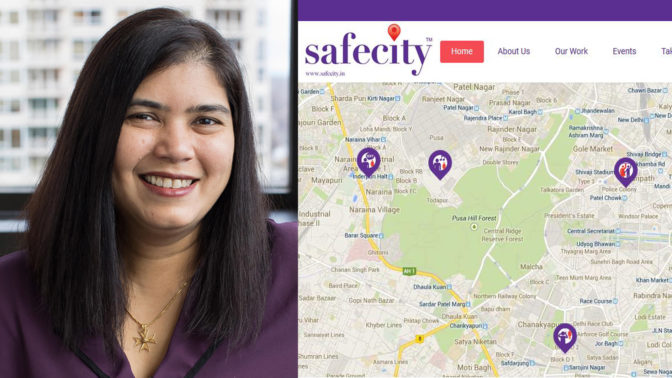
Lungelwa Tyali also knows the importance of female role models, and is proud to have become one for other women herself:
I was invited to speak at a 'Women in Energy' platform. There were so many women there. It was amazing. They were very interested in SolarTurtle because of what we are bringing. They were also excited that this company is led by a woman – a black woman for that matter. In technology, and I'm not an engineer. […] So, the fact that I'm in the energy space and I happen to be the CEO of SolarTurtle excites them very much. I'm also bringing solutions to rural women who are disadvantaged and to the youth. I’m creating jobs and empowering them to run their own businesses based on the solar technology in the future.
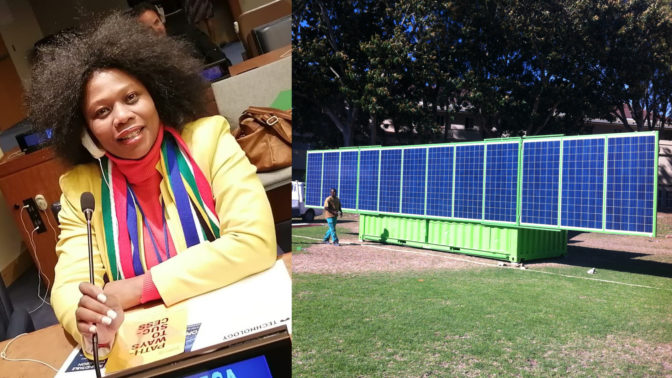
Besides role models, mentors can also be crucial in encouraging women not only to engage in a startup despite the risks and uncertainties involved, but, more importantly, once this step is taken. Everyone I spoke with reported that they have had great mentors who advised and encouraged them to be where they are today. This is why we, at Siemens Stiftung, consider peer-learning and networking opportunities as fundamental elements of our network and are happy to provide one-on-one support through our epMentoring program.
There are many benefits of being part of a network – and potential downsides when it is too exclusive (e.g. if it were only for women)
The connection to mentors is an important component of an entrepreneur’s network. Whether informal or structured, social networks provide entrepreneurs with diverse forms of capital that becomes relevant for their operations. It might, therefore, come as no surprise that the six women are all part of (business) networks and benefit from various flows of resources. According to Silvana Veinberg, the exchange within networks is also helpful to change perspectives:
To be able to look at the same thing but from another point of view and to rethink what you already thought so many times is very important for an entrepreneur. And then, someone comes with a new perspective and this is great because something changed and so everything reorganizes.

Lieselotte Heederik explains how networks are crucial for entrepreneurs to not feel alone, using the example of epNetwork:
It enabled us to get to know more social entrepreneurs. I think it can be a lonely journey, so it's very inspirational, very nice to meet people that are on the same journey as you, even though they are in different regions of the world. It's always very inspirational to see how they deal with certain challenges, or how they've overcome certain challenges, or how they go about. So, it's definitely crucial to stay motivated and inspired. And feel connected. It provides a sense of connection and a sense of belonging to this group of people that share the same DNA.
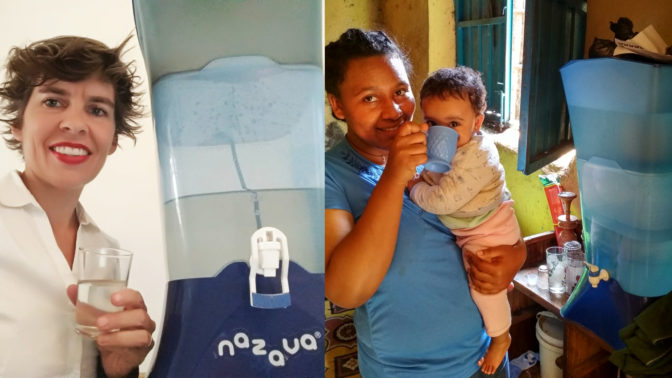
Ana Luisa sums it up as follows:
The benefits are spiritual, knowledge, emotions, feeds. To be inside a network is nurturing.

Regarding female-only networks, opinions differed. On one hand, some women highlighted the potential of these kinds of networks to be spaces for open conversation, mutual understanding, trust, and empowerment. On the other hand, some feared that networks exclusively for women could carry the risk of not preparing them well for “the real world” and only enabling single-sided exchange – whilst using their male counterparts’ well-established networks is crucial in accessing new resources. In fact, there is evidence that women do not gain access to resources and capital when not connected to men who traditionally own these resources.[4] Eventually, the overall masculine entrepreneurship sector remains unchallenged and female entrepreneurs remain isolated and underrepresented in the public. Erin Keaney puts it as follows:
There is a danger with women-specific networks of being too isolated. It is wonderful to have practice meeting with investors, for example, but only if it is reflecting real-world situations. It is an unfortunate fact that when there is a mix of genders in a room, the dynamics can change. All of a sudden, questions could be phrased differently. Making safe spaces is important, but including everyone in the conversation is what drives change. Organizations should strive to find an appropriate balance and stay open to engaging with other communities for a well-rounded perspective.
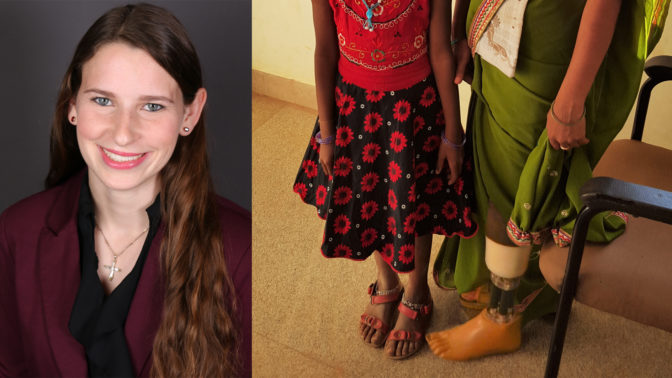
Sometimes, women’s needs are different to those of men
Ideally, epNetwork creates safe, inspirational, and empowering spaces for all genders, even though there are still many things to learn and questions to answer on our way. As an example, given the fact that more women than men are in charge of care work, we as providers of financial and non-financial support should consider women’s needs, i.e. regarding childcare:
There was one incubator program that I wanted to participate in when I was still breast-feeding. I asked for a place where I could keep my child during the workshop. And they were like ‘no, we never thought of that’. So, I think many women start-up their business also during a change, during a period that they might also become a mother. I think many programs are not equipped to deal with breast-feeding mothers.
As a network for social entrepreneurs alone, we can, of course, not eliminate all discriminating structures and hurdles that women face. However, we can do our part in creating a feminist society by putting a gender lens on our activities and redesign them accordingly. This includes, among other things, checking our biases, screening for women entrepreneurs through diversified channels, and providing them with the individual support they need. Erin Keaney’s wish for female entrepreneurs would be:
That women get the same questions as men and the same treatment as anybody else would. What I want to see is that people are given the same opportunity, and that people don't just say ‘oh, there's a female, she's probably going to get married and have kids, and that's probably going to affect her career’ - because then their career will be affected by their bias, no matter what they do in their life.
And so that, in 5 years’ time, when you’re browsing our organizations database, you will notice that there is no gender gap anymore.
——————–
[1] Elam, A. B. et al. (2019): Global Entrepreneurship Monitor. 2018/2019 Women’s Entrepreneurship Report. Publ. by Global Entrepreneurship Research Association (GERA). London Business School. London, 8ff.
[2] Elam, A. B. et al. (2019): Global Entrepreneurship Monitor. 2018/2019 Women’s Entrepreneurship Report. Publ. by Global Entrepreneurship Research Association (GERA). London Business School. London, 8ff.
[3] Hanson, S. (2009): Changing Places Through Women’s Entrepreneurship. In: Economic Geography 85 (3), 247; Hanson, S.; Blake, M. (2009): Gender and Entrepreneurial Networks. In: Regional Studies 43 (1), 145; Minniti, M.; Naudé, W. (2010): What Do We Know About The Patterns and Determinants of Female Entrepreneurship Across Countries? In: Eur J Dev Res 22 (3), 280.
[4] McAdam, M.; Harrison, R. T.; Leitch, C. M. (2019): Stories from the field: women’s networking as gender capital in entrepreneurial ecosystems. In: Small Bus Econ 53 (2), 470f.